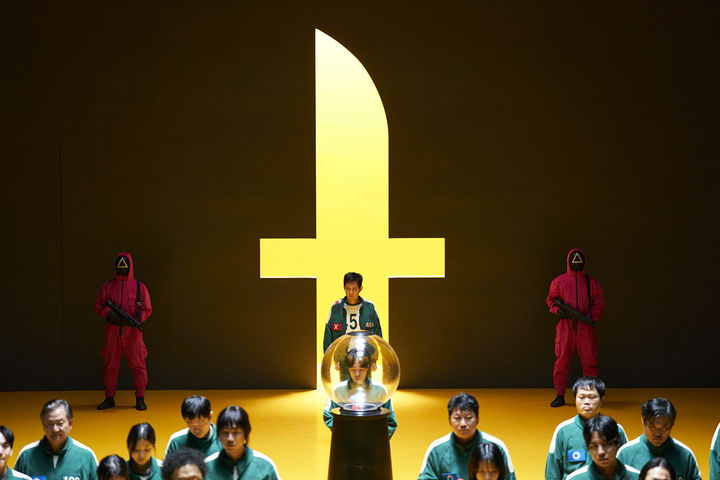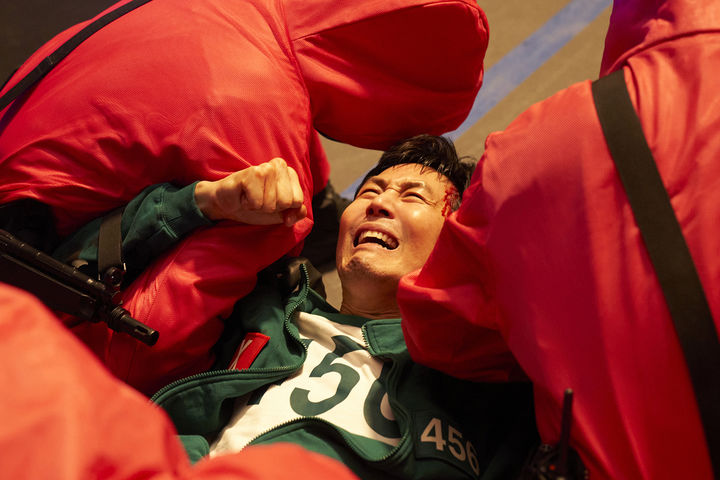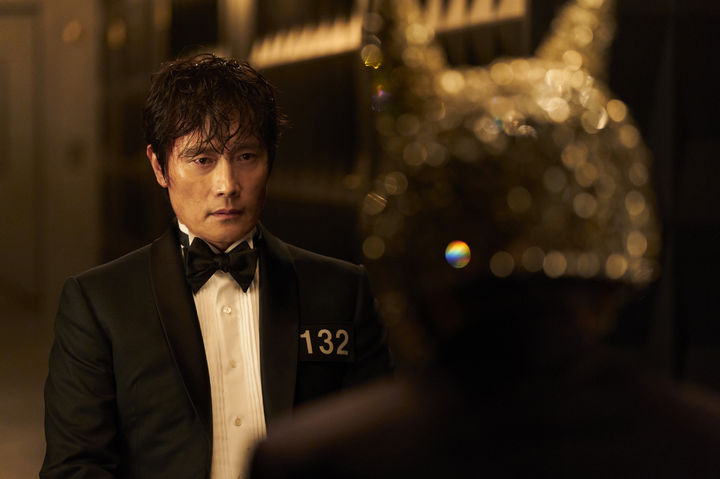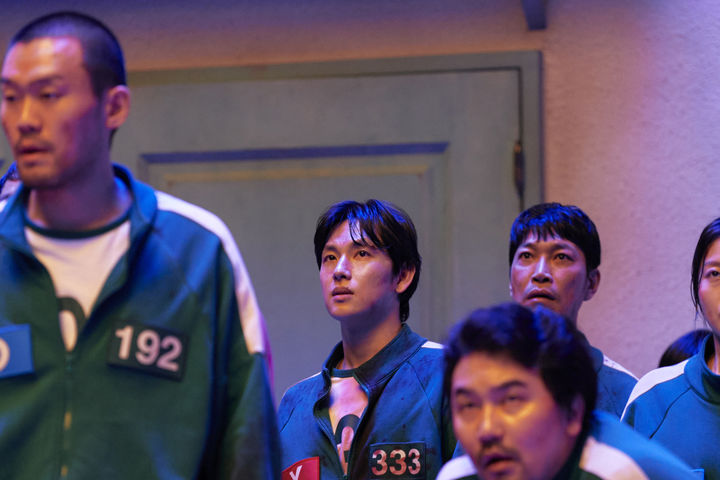This is eerily similar to a post-apocalyptic 'Squid Game 3.'

The Netflix series "Squid Game Season 3" (released on June 27) is, of course, filled with despair. The rebellion from the previous season ended in a crushing defeat. Those who wanted to end the game and get out, those who tried to hold onto their remaining humanity, have mostly died. Only those who want to see the game through to the end remain, and Sung Ki-hun, who lost his weapon and even his friend after his plan failed, feels helpless. Season 3 seems to be brimming with pessimism, frustration, resignation, disappointment, and discouragement, pressing down on the viewer with its weight. The "Squid Game" series is often categorized as a death game genre, but Season 3 resembles a post-apocalyptic genre. However, it might not be easy for the solemnity and seriousness of the new season to fully reach viewers beyond the screen. This work lacks the "ki-seung" (build-up and climax) part of the "ki-seung-jeon-gyeol" (introduction-climax-resolution) structure, and there is no introduction, development, or crisis in the "baldan-jeonhae-wigi-jeongjeong-jeompan" (setup-development-crisis-climax-resolution) sequence. It will take time to become accustomed to the poignant emotions encountered when facing them without having one's heart warmed up first.
There hasn't been a season like it, but the greatest fun of "Squid Game 3" is undoubtedly the games themselves. The three games shown in season 3 dominate the games presented in the first two seasons in terms of basic settings and the intricate details entangling each character. Not only do they raise extreme tension with each participant's selection and decision, but they also strike at the overarching thematic elements that run through the series. The decisive final blow comes from the last game. It is evident that every aspect, including the various settings preceding the main games, the survivors, the nature of the games, the conversations during the game process, the dilemmas of the participants, and their choices, has been meticulously designed. This game alone encompasses all the games that came before it and the story that "Squid Game" has aimed to tell from season 1 to season 3, making it outstanding.

As with the previous work, the acting is also impressive. Although Lee Byung-hun does not have much screen time compared to Season 2, he manages to convey the complex emotions that Frontman has towards Sung Ki-hoon in just one glance. Even though his backstory as Frontman is only briefly mentioned, it becomes understandable because of Lee Byung-hun's performance. Kang Ae-sim and Yang Dong-geun are poignant, Park Sung-hoon and Cho Yu-ri are solid, No Jae-wan and Lee Da-vit shine, and Im Si-wan explodes. However, 'Squid Game 3' ultimately belongs to Lee Jung-jae. He embodies the pessimism depicted in this series with his entire being. The silence and lack of expression shown by the fallen Sung Ki-hoon might be the contemporaneity that Director Hwang possesses, yet Sung Ki-hoon's struggle to not give up on the slightest hope could be the minimum humanity that Director Hwang desires. Lee Jung-jae's eyes seem to fully understand Director Hwang's vision, ultimately moving the heart.
It has outstanding points and many advantages, but there are also shortcomings. The biggest weakness pointed out when season 2 was released was that the story is cut off in the middle. The choice to cut the narrative in half continues to be a misfortune even in season 3. To put it simply, season 3 feels abrupt. Without building up anything beforehand, it's inevitable to show the heightened emotions of key characters like Sung-ki Hong from the first episode, causing the rhythm with the audience to constantly fall out of sync. Knowing what story was told in season 2 and following the emotions of the characters in that story are completely different things. No matter how outstanding a series is, there is no way to maintain the immersion felt in real-time for six months. Moreover, 'Squid Game' chose to divide the season at a point where Sung-ki Hong's story was reaching its climax, thereby lowering its own completeness.

Although this season is arguably the most important in the series, its structure being messy is a fatal flaw. While the previous two seasons progressed along two axes: Seong Gikoon's game and Hwang Joonho's search, the new season crosses three storylines: Seong Gikoon's game, Hwang Joonho's search, and Kang Noreul's escape. With insufficient time for viewers to fully immerse themselves in the narrative of game participants like Seong Gikoon, constantly switching between Hwang Joonho and Kang Noreul's struggles often results in a lack of focus on crucial moments. The subplots involving Hwang Joonho and Kang Noreul are also rather dull, which keeps catching the viewer's attention. Conversely, what should have been given the most importance seems to be glossed over. The process of Seong Gikoon discovering the frontman's identity, which was considered the biggest highlight of season 3, not only fails to create dramatic twists in the narrative but also seems to weaken the impact of the emotions at that moment.
Director Hwang said at the production presentation held on September 9th that he is interested in a 'Squid Game' spin-off, but there are no plans to make a sequel. However, Netflix clearly foresees the expansion of the 'Squid Game' series universe. The epilogue of this season seems generally unnecessary, but it increases anticipation by featuring one of the greatest actors of this era towards the end. This actor, who was not mentioned among the Hollywood stars previously rumored to be in the series, has been acting for nearly 40 years and has rarely appeared in the series, so it's intriguing to wonder what role this actor will take on in 'Squid Game.' And one cannot help but be interested in what dynamic story will emerge when this actor joins and the universe of the series expands.

Post a Comment